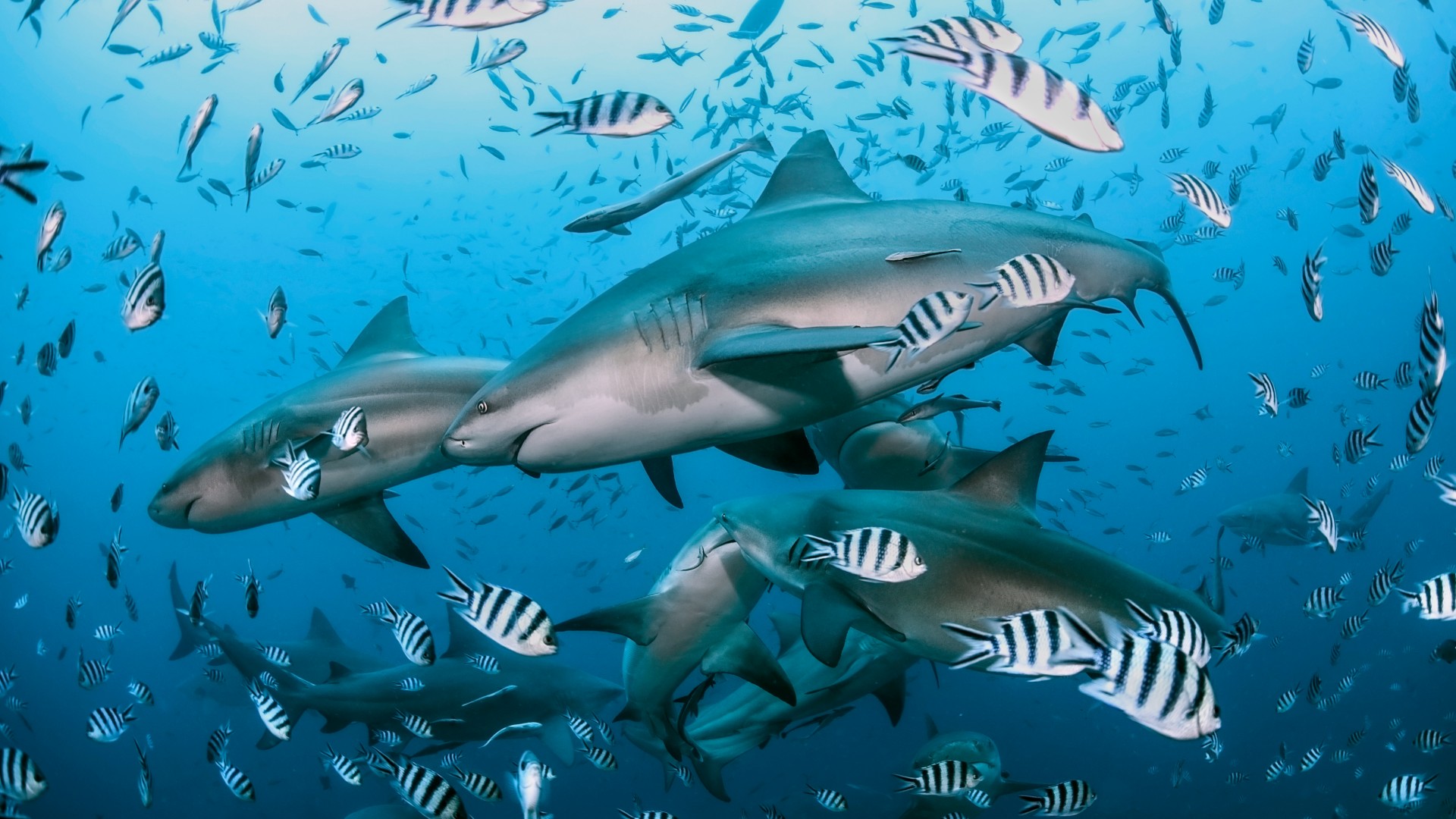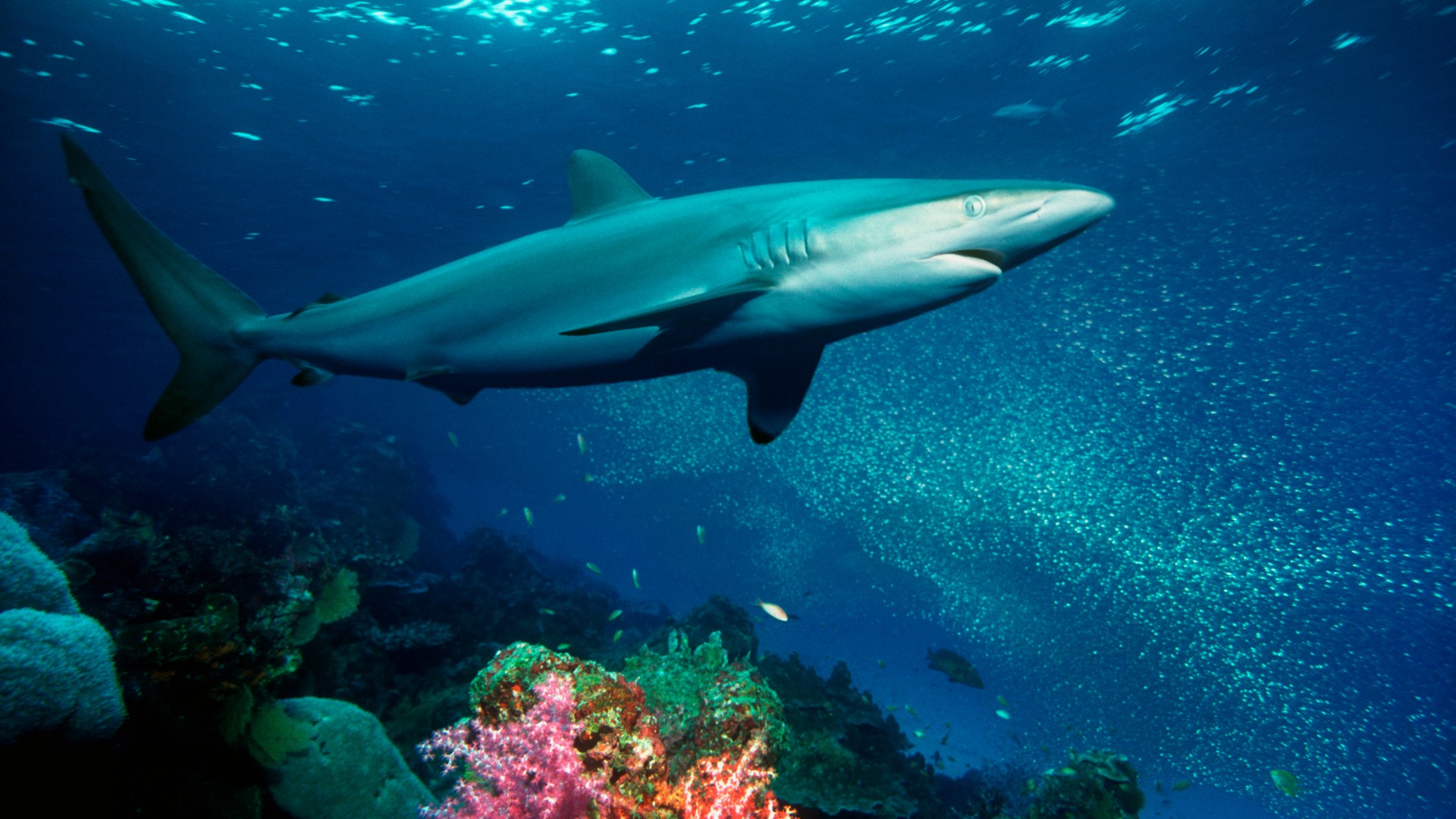
Sharks are older than the dinosaurs. What's the secret to their success?
Sharks have lived on Earth for at least 450 million years.

Sharks are hardly newbies on our planet. As a group, they have existed for at least 450 million years, surviving four of the "big five" mass extinctions, including the catastrophe that wiped out the nonavian dinosaurs 66 million years ago at the end of the Cretaceous period.
For context, that makes sharks older than dinosaurs, which emerged roughly 240 million years ago, and even trees, which evolved on Earth around 390 million years ago.
So how have sharks, as a group, survived this long? What are the secrets to their success?
Related: What is the oldest shark?
One explanation could be that sharks are capable of modifying their physiology in response to environmental conditions, such as shrinking in size when temperatures increase. This capability enables species to quickly adapt to rapidly changing ecological niches.
Sharks are close relatives of skates, rays and chimeras, all of which belong to a group of fish known as the chondrichthyes, which are distinct in that most of their skeleton is made of cartilage rather than bone. Gene expression studies in skates have shown their adaptability when the waters they inhabit change several degrees in temperature. For example, a population of winter skate (Leucoraja ocellata) living in the southern Gulf of St. Lawrence in Canada was able to adapt to water temperatures increasing 18 degrees Fahrenheit (10 degrees Celsius) over a period of 7,000 years by "dramatically reducing its body size" by 45%, a 2016 study in the journal Royal Society Open Science found. In evolutionary terms, 7,000 years is a short amount of time, which led scientists to think the winter skates' rapid change in size was down to an epigenetic response, in which gene expression is altered due to environmental factors, rather than natural selection gradually selecting for smaller individuals.

Christopher Lowe, a professor of marine biology and director of the Shark Lab at California State University Long Beach, told Live Science that some sharks are unique in that they have very large genomes, which may contain genes that, while not being useful now, may have enabled them to tolerate past climatic conditions.
Sign up for the Live Science daily newsletter now
Get the world’s most fascinating discoveries delivered straight to your inbox.
Additionally, several species of elasmobranchii, a subclass of the cartilaginous fish group that includes sharks, can move between freshwater and saltwater environments — a huge physiological challenge. The notoriously aggressive bull shark (Carcharhinus leucas) is one of the most well-known sharks that is capable of living in fresh and salt water environments. This ability likely aided past shark species when global temperatures were changing and massive amounts of fresh water were entering the oceans due to melting ice caps.
Related: Shark facts — everything you need to know about the ocean's apex predators
This versatility likely underpins sharks longevity as a group, said Gavin Naylor, director of the Florida Program for Shark Research. For instance, sharks are found in different parts of the water column — living in deep oceans, shallow seas and even rivers — and can gobble up an array of food, including plankton, fish, crabs, seals and even whales, according to the Natural History Museum in London. Put another way, if one area or food source is threatened, sharks' diversity as a group means that while some species may experience hardship or even extinction, others will likely survive.
We usually think of sharks as being exclusively carnivorous, but we now know that they are more diverse eaters, according to a 2018 study in the journal Proceedings of the Royal Society B. This adaptability when seeking a meal may have also allowed them to survive times of scarcity.
But while sharks have managed to avoid previous mass extinctions with their adaptability, they are currently facing an unprecedented challenge: human activity.
"Sharks have been able to deal with climatic changes in the past fairly well, but the biggest challenge to the world's sharks and rays today is overfishing," Naylor said. "There are no clever tricks that these animals can resort to to contend with being fished out of the water."
"The effects of pollution, contaminants and habitat loss also likely factor into their loss in some places," Lowe added.
Sharks' role in the overall ocean ecosystem cannot be understated. Because so many sharks are apex predators, they are likely to play important roles in regulating the stability of organisms lower in the food chain. Predators are much less numerous than plankton, but they have an outsize effect because they feed on predatory fishes that feed on herbivores that feed on the plankton.
"If you remove the apex predators, it upsets the apple cart and could result in all sorts of changes in the system," Naylor said.
To read more about sharks and to find featured programs during Discovery Channel's Shark Week 2022 (July 24 to 30), visit Live Science's Shark Week streaming guide.
Originally published on Live Science.
Conor Feehly is a New Zealand-based science writer. He has earned a master's in science communication from the University of Otago, Dunedin. His writing has appeared in Cosmos Magazine, Discover Magazine and ScienceAlert. His writing largely covers topics relating to neuroscience and psychology, although he also enjoys writing about a number of scientific subjects ranging from astrophysics to archaeology.










